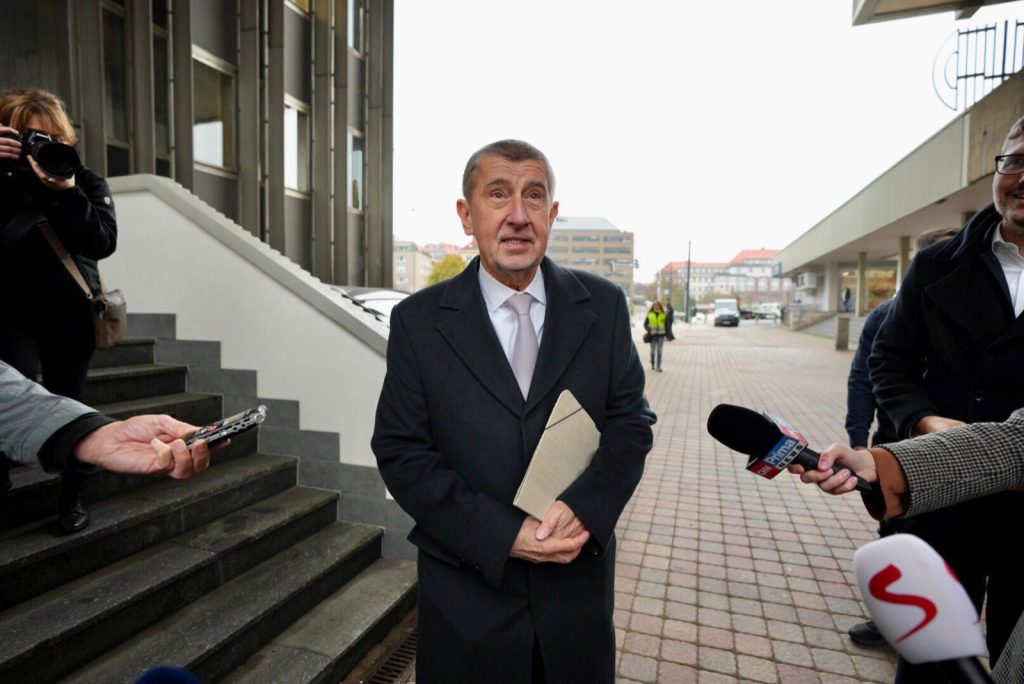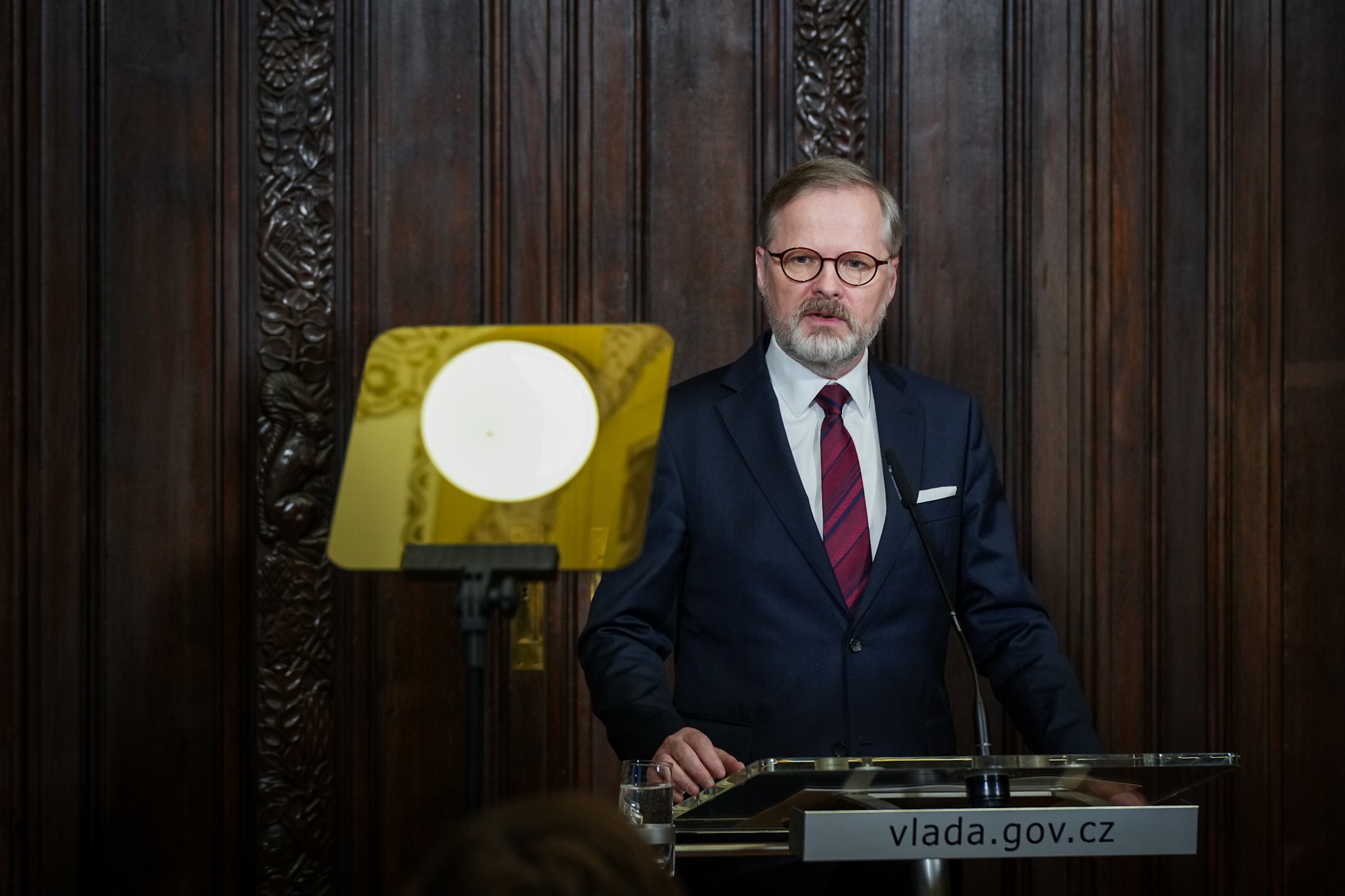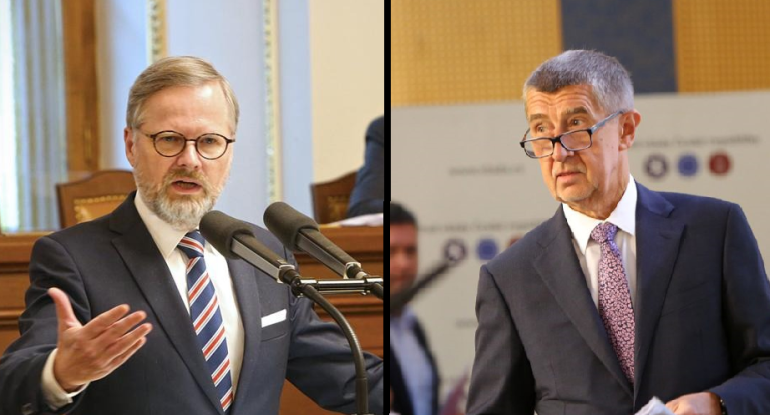In just a few weeks, on 3-4 October, the Czech Republic will hold parliamentary elections. While it may be too early to predict the results, and the final composition of the government for the next four years, one thing is almost certain: there are only two realistic contenders for the post of prime minister. These are Andrej Babiš, the leader of the opposition ANO, and the current prime minister, Petr Fiala, leader of the Civic Democratic Party and the governing Spolu coalition. Both men have already served in the role, yet they could hardly be more different. Here, Brno Daily’s Adam Zapletal takes a closer look at these two dominant figures of Czech politics, their personal backgrounds, and the paths that brought them to power.
The Businessman: Andrej Babiš
According to his own biography, Andrej Babiš was born in 1954 in Bratislava, Slovakia. His father, a member of the Slovak Communist Party, worked for several state-owned companies producing and exporting ceramics and machine tools. His mother was a researcher at the Research Institute of the Poultry Industry. Both of his parents obtained university degrees from the University of Economics in Bratislava.
In the 1960s, Babiš spent much of his childhood in France and Switzerland because of his father’s job. In Switzerland, he was enrolled in a grammar school and later in college, but he completed his high school studies in Bratislava, where the family was forced to return in the 1970s by the Communist regime. After high school, he studied at the University of Economics, following in his parents’ footsteps. During his studies, he became a member of the student club AIESEC, which allowed him to travel to France and Belgium for seasonal work — something very rare at the time.

After graduating, he joined the state-owned company Chemapol, where he worked first in the chemicals department and later in sales. In 1985, while working for another state-owned company importing phosphates, he was sent as a company delegate to Morocco. According to Babiš, he had dreamed of a foreign posting for most of his career. However, for this position he had to join the Communist Party and undergo a series of interrogations by the communist secret police, known as the StB. During the anti-government protests that brought down the Communist regime in Czechoslovakia in 1989, known as the Velvet Revolution, Babiš was still in Morocco. He returned home in 1991 and became head of a business division in the same phosphates company.
In January 1993, just a few weeks after the dissolution of Czechoslovakia, Babiš moved part of the business to the Czech Republic and founded a new company focused on fertilizers, Agrofert. Over the last thirty years, this company has become the largest agriculture and food industry conglomerate in the Czech Republic.
Babiš has four children with two different wives, as well as a brother, Alexander. He separated from his second wife, Monika, last year
From business to politics
Andrej Babiš’s entry into Czech politics can be traced back to May 2010, when President Václav Klaus vetoed an amendment to the Air Protection Act that would have increased the mandatory share of biofuels. The veto posed a direct risk to Babiš, who had recently invested heavily in a biofuel plant and spent months lobbying for the law. His unusually fierce criticism of Klaus, in which he accused him of damaging farmers and the country’s reputation, marked the moment he began transforming from a businessman into a political figure willing to challenge state power. Parliament eventually overturned the veto, but the clash positioned Babiš as a defender against what he framed as corrupt or misguided elites.
After this experience, Andrej Babiš founded the civic initiative ANO 2011, which later transformed into a political party of the same name in 2012. The party’s stated main focus was fighting corruption and improving the functionality and rule of law of the Czech state.
ANO first contested parliamentary elections in 2013, winning a surprisingly high 18.6% of the vote, and becoming the second-largest party in parliament. This sudden success was mainly due to ANO’s anti-corruption stance and the disillusionment of voters with the two then-dominant political parties and their controversies (the conservative ODS and the centre-left ČSSD). After the elections, ANO entered into a coalition government with ČSSD, with Babiš appointed Deputy Prime Minister and Minister of Finance. He served in this role until May 2017, when he was dismissed following a conflict with ČSSD Prime Minister Bohuslav Sobotka.
In fresh parliamentary elections later that year, ANO won nearly 30% of the vote. After almost six months of negotiations, Babiš formed a governing coalition with a greatly weakened ČSSD, with parliamentary support from the Communist Party of Bohemia and Moravia (KSČM), and became Prime Minister. Through the following term, Babiš was the target of much criticism over conflicts of interest, rule of law concerns, his former activities during the Communist era, and much else besides, though his support base among older and less-educated voters has remained loyal.
In the 2021 parliamentary elections, ANO won about 27% of the vote, but was defeated by the Spolu coalition, led by Petr Fiala, and moved into opposition. Current polls suggest that ANO will most likely win the upcoming October elections, with support at around 32%.
The professor: Petr Fiala
Petr Fiala was born in 1964 in Brno. According to his own words, he came from a bourgeois family of the First Czechoslovak Republic (1918–1938), which lost its status after the Communist takeover. His father worked as a planner and later as the head of the planning department at a railway construction plant in Brno, while his mother had been on a disability pension since the late 1970s. Part of Fiala’s family was of Jewish origin; his father was sent to a concentration camp in 1944. After the war, Fiala senior joined the Communist Party so he could study, but resigned his membership in 1956 after the Soviet invasion of Hungary.
Fiala began his studies at Masaryk University in Brno, where he studied Czech language and history. After graduation, he got his first job as a historian in a museum in the town of Kroměříž. During his university years, as he recalls, he took part in numerous independent civic activities against the communist regime in the 1980s. One of these activities was the anti-regime magazine Revue 88, which he co-founded with other students from Brno universities.
After the fall of the communist regime in Czechoslovakia, Fiala and his colleagues co-founded the Department of Political Science at Masaryk University in 1990. Three years later, he became the head of the department, serving until 2002. In 1998, he also contributed to the establishment of the Faculty of Social Studies. He was elected dean of this faculty in 2004. In the same year, he became rector of Masaryk University, a position he held until 2011.

Petr Fiala has written or co-written numerous books and more than 200 academic studies. His work covers themes such as the European Union, political extremism and radicalism in the Czech Republic, and theories of political parties. He has been with his wife Jana since 1992 and they have three children.
From professor to politician
After his tenure as rector, Fiala began moving towards high-level politics. He was appointed Chief Scientific Advisor to the Prime Minister and, in 2012, accepted the position of Minister of Education in the government of Petr Nečas (ODS). He remained in office for only a year, before running as the lead ODS candidate for the South Moravian Region in the 2013 parliamentary elections. In the same year, he joined ODS officially, and was elected leader in 2014, a position he has held until today. His first parliamentary election as leader was in 2017, when ODS won 11.3% of the vote, second behind ANO.
In autumn 2020, Fiala’s ODS formed a coalition with the liberal TOP 09 and Christian Democrat KDU-ČSL. This coalition, named Spolu (“Together”) ran in the 2021 parliamentary election and won nearly 27.8% of the vote, becoming the largest political bloc in parliament and defeating ANO by just a few tenths of a percent. The Spolu coalition subsequently formed a governing alliance with STAN and the Pirate Party, which remains in power until today.
Current polls indicate that Spolu will likely lose the upcoming elections to ANO, with current support at only around 20%.
A fork in the road
The result of this is a stark choice for Czech voters: two household names, both known quantities who have already served as Prime Minister, both of whom seem in full control of their respective parties, and both offering a very different future for the country.
While Fiala has seen very low personal approval ratings for much of his term, and there is considerable anger among voters at the economic performance of his government and a series of recent scandals, he is nonetheless positioning Spolu as the guarantor of the Czech Republic’s western orientation, EU and NATO membership, and democratic future. During the election campaign, Spolu have sought to characterise Babiš as a pro-Russian demagogue and a threat to Czech democracy, who is cavalier about national security in the face of a febrile geopolitical situation.
ANO, for their part, have painted Fiala during the campaign as a war hawk, who would rather spend taxpayers’ money on security at a time when many are struggling deeply with the cost of living, and whose stance on Ukraine threatens to draw the country into a war with Russia. ANO have also been criticising Spolu for taking an allegedly weak line against EU plans for immigration and the green energy transition, though Czech governments of all stripes have consistently been among the most anti-immigration and least environmentally-friendly within the bloc.
In this context, neither man seems to meet the palpable desire for “change” among much of the Czech electorate. However, much will depend on the precise composition of the resulting government. Babiš has been seeking to reassure voters that ANO will not question the Czech Republic’s EU or NATO membership, but its possible coalition partners, especially the far-right SPD and the conspiratorially-minded left-nationalist Stacilo! alliance, are both campaigning for referenda on these issues. If Babiš finds himself without a majority and needing to make a deal, this could all quickly be back on the table.
Nonetheless, it appears that Fiala and his allies are struggling to quell public anger over his government’s shortcomings and mistakes. For a restless electorate at an anti-system political moment, dire warnings about the future of democracy may not stop the country giving Babiš another shot at power.







